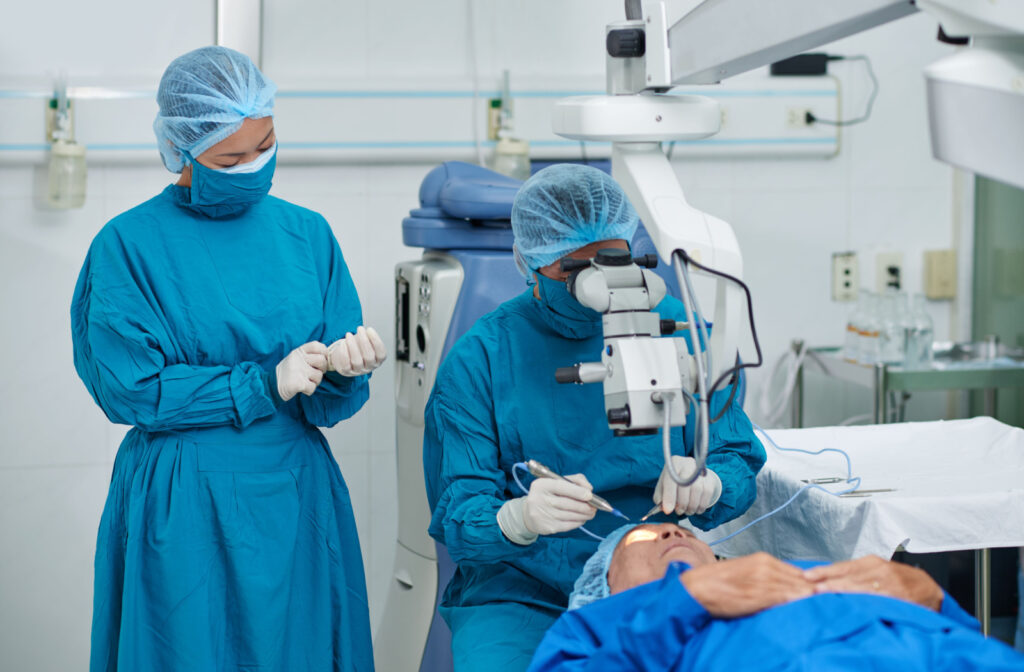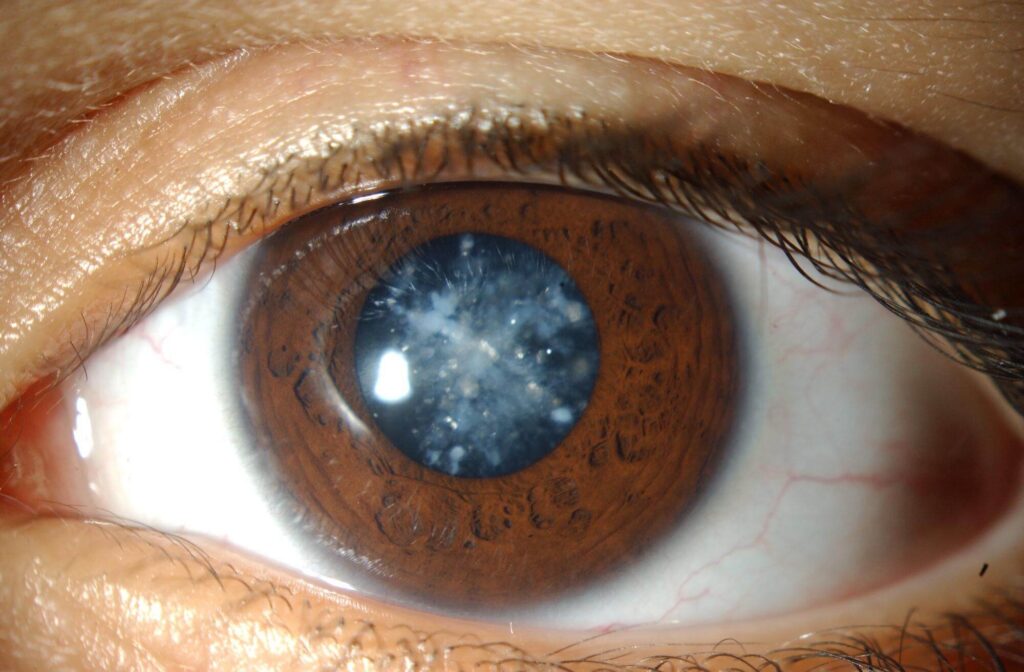Cataracts can significantly impact one’s vision and overall quality of life. However, thanks to advancements in medical technology, cataract surgery is now a safe and effective solution for restoring clear vision. By understanding the causes, symptoms, and benefits associated with cataract surgery, individuals can make informed decisions about their eye health.
Understanding Cataracts: Causes and Symptoms
Cataracts, a common age-related vision problem, occur when the natural lens of the eye becomes cloudy. This cloudiness is typically a result of the protein in the lens breaking down over time. While age is a significant contributing factor, other factors such as genetics, diabetes, smoking, and prolonged exposure to sunlight can also increase the risk of developing cataracts.
In conclusion, cataracts surgery is a life-changing procedure that can restore clear vision and significantly improve one’s quality of life. By understanding cataracts, the surgery process, and the benefits associated with the procedure, individuals can make informed decisions about their eye health. It is essential to consult with an eye care specialist for a comprehensive evaluation and personalized treatment plan to experience the life-changing benefits of cataract surgery.
It is important to note that cataracts can develop not only due to aging but also as a result of certain medications like corticosteroids or as a complication of other eye conditions such as uveitis. Furthermore, individuals with a history of eye injuries or surgeries may be more prone to developing cataracts earlier in life.
The Science Behind Cataracts
Under normal circumstances, the lens of the eye is clear and focuses light onto the retina, enabling us to see clearly. However, when cataracts develop, the cloudy lens obstructs light, causing vision to become blurry, hazy, or distorted. As the cataract progresses, daily activities such as reading, driving, and recognizing faces may become increasingly challenging.
Moreover, cataracts can vary in size and location within the lens, leading to differences in how they affect vision. Some cataracts may only cause minor visual disturbances, while others can result in significant vision loss if left untreated. Understanding the specific type and severity of cataracts is essential for determining the most suitable treatment approach.

Recognizing the Early Signs of Cataracts
Early detection of cataracts is crucial for timely intervention. Common symptoms include blurred vision, sensitivity to light, trouble seeing at night, and the appearance of halos around lights. Additionally, colors may appear faded, and frequent changes in glasses or contact lens prescriptions may be necessary. If these signs are experienced, it is important to consult an eye care specialist for an accurate diagnosis and appropriate treatment options.
Furthermore, individuals with certain medical conditions such as hypertension or obesity may have an increased risk of developing cataracts. Maintaining overall eye health through a balanced diet rich in antioxidants, regular eye examinations, and protecting the eyes from harmful UV rays can help reduce the likelihood of cataract formation. By staying informed about the causes and symptoms of cataracts, individuals can take proactive steps to preserve their vision and quality of life.
The Journey to Clear Vision: Cataract Surgery Explained
Cataract surgery is a transformative procedure that has helped millions of people regain their vision and improve their quality of life. The process involves the skilled removal of the cloudy lens that impairs vision, replacing it with a clear artificial lens known as an intraocular lens (IOL). This modern medical marvel allows individuals to see the world with clarity and precision once again.
Before embarking on the cataract surgery journey, patients are guided through a comprehensive evaluation to assess the severity of the cataract and determine the most appropriate IOL for their unique needs. This personalized approach ensures that each individual receives tailored care that maximizes the potential for optimal visual outcomes.
Preparing for Cataract Surgery
Prior to the surgical procedure, patients undergo a series of preoperative examinations to gather essential data about the eye’s curvature, intraocular pressure, and overall health. These meticulous assessments provide the surgical team with crucial information to plan and execute the surgery with precision and care. Additionally, the surgeon conducts a thorough review of the patient’s medical history, addressing any concerns and outlining potential risks or complications to ensure informed decision-making. Learn more about medical history at https://hsl.osu.edu/dept/medical-heritage-center/what-is-medical-history
Furthermore, patients are encouraged to share any specific visual goals or preferences they may have, allowing the surgical team to tailor the treatment plan to meet individual expectations. This collaborative approach fosters a sense of empowerment and confidence in the patient, knowing that their voice is heard and their vision needs are prioritized.
The Procedure: What to Expect During Cataract Surgery
Cataract surgery is typically performed as an outpatient procedure, offering the convenience of returning home on the same day. Under local anesthesia, the skilled surgeon delicately creates a small incision in the cornea, providing access to the clouded lens. Utilizing advanced surgical instruments, the surgeon gently breaks up the cataract into tiny fragments, which are then safely removed from the eye. The insertion of the IOL follows seamlessly, restoring clarity and focus to the patient’s vision.
It is remarkable to note that the incision made during cataract surgery is self-sealing, eliminating the need for stitches and promoting rapid healing. This innovative approach not only streamlines the recovery process but also minimizes discomfort and reduces the risk of complications, allowing patients to resume their daily activities with enhanced vision and renewed vitality.
Post-Surgery: Recovery and Adjustment
Following cataract surgery, patients can anticipate a relatively short recovery period. It is normal to experience some itching, discomfort, or mild inflammation, which can be managed with prescribed eye drops. Full healing usually occurs within several weeks, and the vision continues to improve during this time.
During the recovery period, it is essential for patients to follow their ophthalmologist’s post-operative care instructions diligently. This may include wearing a protective eye shield while sleeping, avoiding strenuous activities, and attending follow-up appointments to monitor progress and address any concerns that may arise.
Healing Process After Cataract Surgery
The healing process after cataract surgery involves the regeneration of the outer layer of the eye, known as the cornea. This process might cause visual fluctuations or mild blurriness during the initial stages of recovery. However, as the cornea heals, vision will gradually stabilize and become crisp and clear.
It is important for patients to be patient and allow their eyes to heal naturally. Rushing the healing process by overexerting the eyes can lead to complications and hinder the overall outcome of the surgery. Resting the eyes adequately and following the recommended guidelines can significantly contribute to a successful recovery.
Adjusting to Improved Vision
After cataract surgery, patients often experience a dramatic improvement in their vision. They may find colors have become more vibrant, and objects appear sharper and more defined. This newfound clarity allows individuals to engage in activities they may have previously avoided due to poor vision, such as reading, driving, or pursuing hobbies.
As vision continues to improve post-surgery, patients may notice a reduction in their dependency on glasses or contact lenses. This newfound visual freedom can be liberating and enhance the overall quality of life for individuals who have struggled with cataracts and vision impairment.
The Life-Changing Benefits of Cataract Surgery
Beyond the obvious visual improvements, cataract surgery offers numerous life-changing benefits for individuals. Let’s explore some of these advantages:
Learn more about revolutionizing vision the latest advancements in cataract surgery Sydney on https://lifespr.com/revolutionizing-vision-the-latest-advancements-in-cataract-surgery-sydney/
Enhanced Quality of Life
By eliminating the visual impairments caused by cataracts, individuals can enjoy a higher quality of life. They can once again appreciate the beauty of their surroundings, actively participate in social activities, and confidently pursue their passions. Restoring clear vision allows individuals to remain independent and actively engaged in their day-to-day lives. To read more about social activities click here.
Improved Safety and Independence
Clear vision is essential for personal safety, especially when it comes to driving or navigating the environment. Cataract surgery provides individuals with enhanced safety, allowing them to confidently carry out daily tasks, such as crossing the road, climbing stairs, or cooking. This improved independence empowers individuals to maintain an active and fulfilling lifestyle.
Furthermore, cataract surgery not only improves visual acuity but also enhances color perception and contrast sensitivity. This means that individuals can experience a more vibrant and detailed world, appreciating the nuances of colors and textures that were previously dulled by cataracts. The ability to see clearly can lead to a renewed sense of wonder and appreciation for the beauty of the world.
Financial Benefits and Productivity
Another significant advantage of cataract surgery is the potential for financial savings and increased productivity. Improved vision can lead to better performance at work, potentially opening up new opportunities for career advancement. Additionally, with clearer vision, individuals may reduce the need for prescription eyewear or visual aids, resulting in long-term cost savings. This financial stability and increased productivity can have a positive impact on overall well-being and quality of life.

Addressing Common Concerns About Cataract Surgery
While cataract surgery is a highly successful procedure, some individuals may have concerns or misconceptions that prevent them from seeking treatment. Let’s debunk some of the common myths and address fears surrounding cataract surgery:
Debunking Myths About Cataract Surgery
One common myth is that cataract surgery is painful. However, with modern anesthesia techniques, the procedure is virtually painless. The surgeon will administer local anesthesia to numb the eye area, ensuring that you feel little to no discomfort during the surgery. Additionally, advancements in surgical techniques, such as small incisions and phacoemulsification, have made the procedure even more comfortable and efficient.
Another misconception is that the recovery process is lengthy and complicated. In reality, most patients experience a smooth recovery and resume their normal activities soon after surgery. After the procedure, you will be given specific instructions on post-operative care, including the use of eye drops and avoiding strenuous activities. It is normal to experience mild discomfort, itching, or blurred vision initially, but these symptoms typically subside within a few days.
Addressing Fears and Anxieties
It is natural to feel anxious before undergoing any surgical procedure. However, discussing concerns with the surgeon and gaining a better understanding of the process can alleviate these fears. Eye care professionals are experienced and dedicated to creating a comfortable and supportive environment for their patients. They will take the time to explain each step of the surgery, answer your questions, and address any anxieties you may have.
Furthermore, it is essential to remember that cataract surgery is one of the most commonly performed surgeries worldwide, with millions of successful procedures conducted each year. Surgeons who specialize in cataract surgery have undergone extensive training and have a wealth of experience in ensuring optimal outcomes for their patients. Rest assured that you are in capable hands throughout the entire process.

